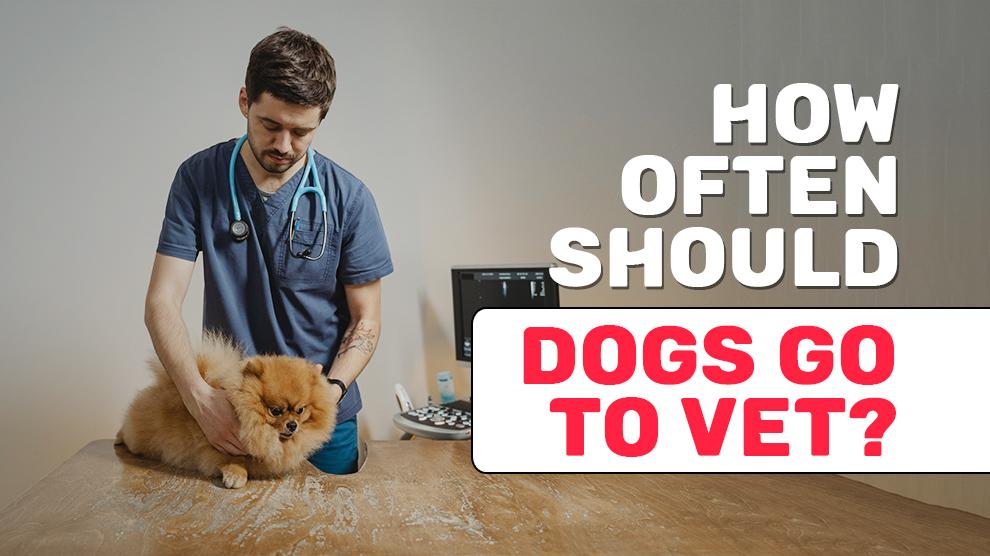- How Often Should I Take My Dog To The Vet?
- When Is The Best Time To Bring Your Pet In For A Checkup?
- Why Do Pets Need Regular Health Checks?
- How Long Does It Take To See Results From A Visit To The Vet?
- What Are Some Signs That You Should Be Worried About Your Pet\'s Health?
- Can I Prevent Illness By Taking Care Of My Pet At Home?
- Be Aware Of Pet Insurance Options
Dog Pregnancy Calculator And Timeline
Your dog’s health is important to you, and it depends on how regularly you are taking him/her to the vet.
A veterinarian checks on his vitals and prescribes proper diet plans in order to enhance the overall health condition of your furry friend. But, do you know when to bring your dog to the vet?
If you’re a dog owner, you may want to know how frequently you need to bring your furry friend to the vet. This article will give you information about how often your dog needs to see the vet.
How Often Should I Take My Dog To The Vet?
Do you need to see your veterinarian for routine care? Or, should you wait until there is an emergency before bringing your pet in for a visit? The answer depends on several factors, including your pet’s age, breed, and overall health. It’s important to keep an eye on your furry friend’s health, especially during the first year of life.
It’s important to take your dog to the vet regularly for an exam. This will help ensure that your dog stays healthy and happy. You should also consider bringing him to the vet every year for a general checkup.
When Is The Best Time To Bring Your Pet In For A Checkup?
If your dog has been acting sickly lately, or if he/she seems lethargic, then it might be time to take him/her to the vet. However, if your dog is healthy, then you probably won’t need to go to the vet as often.
Look For Signs Of Illness
You should also keep an eye out for any signs of illness. A healthy dog will eat well, drink plenty of water, and exercise daily. He may even show some interest in playing with toys. However, if your dog seems lethargic, acts sickly, or shows other symptoms of illness, take him to the vet right away.
Looks For Any Changes In Behavior
If you notice any changes in your dog’s behavior, such as eating less than usual, acting unusually tired, or sleeping more than normal he may need medical attention. These behaviors could indicate a serious problem, so make sure to contact your veterinarian immediately.
Why Do Pets Need Regular Health Checks?
A regular visit to the vet will help keep your pet healthy by catching any illnesses early. It also helps ensure that your pet receives proper vaccinations and other preventative care.
How Long Does It Take To See Results From A Visit To The Vet?
If you’re wondering how often you should take your dog to the vet, there isn’t an exact answer. However, it’s generally recommended that you bring your pet in every six months for a routine exam. This includes checking for parasites, making sure your pet has been vaccinated against certain diseases and performing blood tests to make sure your pet’s immune system is functioning properly.
What Are Some Signs That You Should Be Worried About Your Pet's Health?
There are several signs that you should be worried about your pet’s health. These include changes in behavior, such as aggression towards other animals or people, lethargy, vomiting, excessive drinking or urinating, diarrhea, weight loss, and difficulty breathing. If you notice any of these symptoms, contact your veterinarian immediately.
Can I Prevent Illness By Taking Care Of My Pet At Home?
You can take some steps to help keep your pet healthy at home. First, make sure your dog has access to fresh water and food every day. Second, give your pet plenty of exercise, especially during warm weather months. Third, make sure your pet gets regular veterinary care. Finally, talk with your veterinarian about how often you need to bring your pet in for an exam.
Be Aware Of Pet Insurance Options
If you own a dog, you probably know how much work it takes to keep your furry friend healthy. That’s why it’s so important to make sure he has access to quality veterinary care. Fortunately, there are several options available to cover the cost of routine visits to the vet.


















